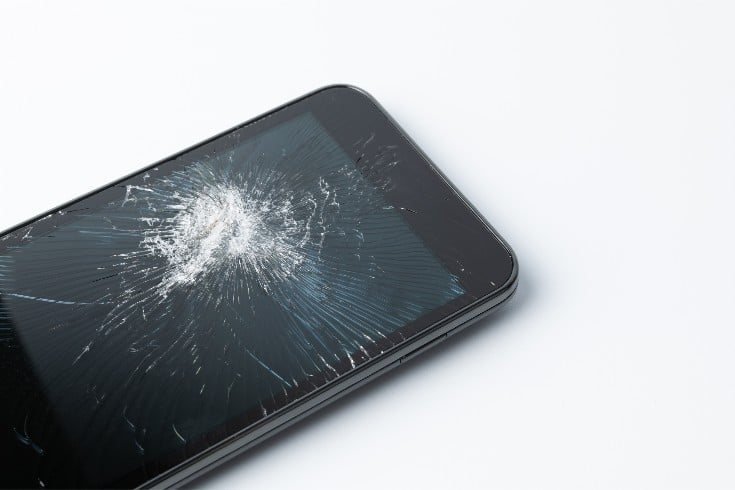Can Naming Names in Google Reviews Constitute Defamation? An Explanation of How to Remove Them

Many people rely on Google reviews when deciding which stores or businesses to use. Malicious reviews posted on Google can significantly damage a company or store’s reputation, potentially leading to financial losses.
Are you wondering what kind of reviews constitute defamation, or whether it’s possible to remove a malicious review once it’s been posted?
This article will explain the criteria for removing Google reviews, whether mentioning names in a negative context amounts to defamation, how to delete reviews, and what to do if a review cannot be removed.
What are Google Reviews?

Google Reviews refer to the opinions and ratings displayed when searching for a business on Google Maps. Users who have actually visited a business can post their thoughts and experiences on Google, sharing information with other users. These reviews are a valuable resource for those searching for businesses or stores they have never visited, helping them find the perfect place to suit their needs.
Every day, millions of reviews are posted on Google by users from around the world. Here, we will explain how Google manages these reviews.
Strict Content Policies
Google has established strict content policies to ensure that reviews are based on actual experiences and visits, and to exclude inappropriate or offensive content. If a negative review is posted without a genuine visit or experience, it could lead to a decrease in potential customers for the business, causing harm. To prevent such situations, Google not only sets content policies but also regularly updates them.
Reference: Google | Policy for User-Generated Content on Maps
Machine Learning for Review Management
Google uses machine learning to monitor reviews around the clock, ensuring they comply with policies. Submitted content is processed by the management system, which determines its validity before removing any false or fraudulent content.
To manage the vast number of daily reviews, Google employs not only automated information processing but also human understanding of nuances. This includes checking for offensive content or irrelevant material, as well as investigating whether the accounts posting the reviews or the locations themselves have any issues. At the same time, human operators regularly undergo training to eliminate bias, improving their ability to detect policy-violating reviews and reducing the chances of mistakenly removing legitimate ones.
Mechanisms to Maintain Credibility and Trust
Google has mechanisms in place that allow users and businesses to report reviews they believe violate policies to the Google team, who can then take actions such as removal, account suspension, or legal measures if necessary.
However, some may worry that responses to reviews are too slow. To prevent such situations, Google conducts proactive analysis and monitoring to stay ahead of malicious users, working to reduce the risk of abuse. For example, in anticipation of high-profile events that may draw public attention, Google applies advanced protection to nearby stores and places that are likely to be searched on Google Maps, continuing surveillance until the risk of misconduct is eliminated.
Can Google Reviews Be Considered Defamation?

When negative reviews about a store or company are posted on Google, there is a risk that it could lead to a decrease in customers and result in damages. Here, we will explain whether Google reviews can constitute defamation.
Defamation Under Article 230 of the Japanese Penal Code
Defamation is established when the conditions of Article 230 of the Japanese Penal Code are met. The article states as follows:
(Defamation)
Article 230: A person who publicly presents facts and damages the reputation of another person shall be punished with imprisonment for not more than three years or a fine of not more than five hundred thousand yen, regardless of whether the facts are true or false.
Source: e-GOV Law Search|Penal Code[ja]
Since the internet is considered a public space, malicious comments posted in Google reviews could potentially be defamation. Defamation is established when all of the following conditions are met:
- There is a risk of lowering social evaluation
- Specific facts are presented
- It is done publicly
Reviews That Simply Name Individuals Are Not Necessarily Defamatory
Reviews that simply name individuals do not constitute defamation. However, if such named reviews meet the conditions of “risk of lowering social evaluation” and “presentation of specific facts,” they could potentially be considered defamatory.
Reviews with a Public Interest Purpose Are Less Likely to Be Defamatory
Reviews with a public interest purpose, meaning those that contribute to the public good, are less likely to be considered defamatory. The requirements for a review to not be considered defamation are as follows:
- The review is related to public interest (public nature)
- The review serves the public good (public benefit)
- The presented facts are recognized as true or can be proven to be true (truthfulness and appropriateness)
- The review does not exceed the scope of opinion or commentary intended to attack a person (non-excessiveness)
If these four requirements are met, defamation may be exempted.
If you would like to know more about the establishment of defamation and public interest, please refer to the following article:
Related article: Establishment of Defamation and Public Interest[ja]
Criteria for Removing Google Reviews

It’s natural to want to remove critical reviews about your company on Google immediately. However, not all negative reviews are subject to removal.
Here, we explain the criteria for removing Google reviews.
Compliance with Google’s Content Policy
Whether a review meets the criteria for removal depends on whether it falls under Google’s prohibited and restricted content policy. The content that is prohibited and restricted includes “false content/fake goodwill” and “inappropriate content or behavior.”
The detailed criteria are as follows:
- Reviews not based on actual experience
- Reviews solicited by a company in exchange for discounts or services
- Reviews posted by impersonating another person or group
- Reviews containing false information
- Reviews attacking other individuals or groups
- Reviews including personal information of others
If a review is deemed to violate Google’s content policy, it may be removed.
Reference: Google | Prohibited and Restricted Content
Does the Post Violate the Penal Code?
If the content of a post violates Article 230 of the Penal Code, it can be considered defamation, and you may request its removal. Other crimes that malicious reviews may fall under include “fraudulent obstruction of business” under Article 233 and “insult” under Article 231 of the Penal Code.
(Credit Defamation and Business Interference)
Article 233: A person who spreads false rumors or uses deception to damage someone’s credit or interfere with their business shall be punished by imprisonment for not more than three years or a fine of not more than 500,000 yen.
(Insult)
Article 231: A person who publicly insults another person without stating facts shall be punished by imprisonment for not more than one year or a fine of not more than 300,000 yen or detention or a petty fine.
Source: e-GOV Law Search | Penal Code[ja]
Fraudulent means involve deceitful schemes or plots. For example, if someone writes a baseless lie such as “the product was contaminated with bugs,” it can damage the store’s reputation and constitute credit defamation. If false posts lead to a flood of complaints and inquiries that overwhelm the store’s response, it could establish a case for fraudulent obstruction of business. Additionally, posts like “idiot” or “XX is a black company” could potentially be considered an insult.
Ratings with Stars Only Cannot Be Removed
On Google Maps, it is possible to rate without posting a review, using stars only. Even if you receive a one-star rating out of spite, without an accompanying review, it’s impossible to judge whether it violates the content policy or the Penal Code.
Therefore, it is difficult to have ratings with stars only removed.
How to Remove Google Reviews

If you find defamatory or false reviews on Google Maps, you should submit a request through Google’s application form. Google offers two methods for removing reviews: one through your Business Profile and another directly from the search results on Google or Google Maps.
For Google’s removal request process, please refer to the following article.
Related article: How to Delete Reviews from Google Maps (My Business)[ja]
After submitting your request, if Google’s review process deems your claim to be valid, the review will be removed. This process may take up to two weeks.
Even if the review is removed, Google does not notify you, so be sure to check for yourself.
Strategies for When You Can’t Delete a Google Review

Even after submitting a deletion request through Google Forms, some reviews may remain undeleted. If negative reviews persist, they can tarnish the image of your business.
In such cases, we will explain what strategies you can employ.
Respond Politely to Negative Reviews
It’s important to respond politely to negative reviews. This can demonstrate to other users that your business handles feedback with sincerity.
As a result, you may be able to dispel a negative impression of your establishment or even prevent the posting of negative reviews in the first place. Among the reviews that Google does not delete, there may be those that are factually incorrect, based on a misunderstanding by the user, or clearly the fault of the reviewer.
By using Google’s reply feature, you can address and counter such reviews. Depending on the content of your response, you can potentially enhance your company’s image.
For example, if it’s clear that the reviewer is at fault, your rebuttal or clarification can demonstrate your business’s legitimacy and integrity. When replying to a review, consider how a third party would perceive your response and strive for polite and concise communication.
Strive to Increase Positive Reviews
If you have a multitude of positive reviews, negative ones become less conspicuous. To mitigate the impact of negative reviews, make an effort to increase the number of positive ones. This can also help to improve your overall rating.
However, avoid having staff write reviews or soliciting others to leave positive feedback. Such actions, if discovered, can lead to penalties such as a lower search ranking for your business or store.
It is crucial to consistently strive to provide high-quality services that naturally lead to positive reviews.
Enhance Your Google Business Profile
Another method is to review and enrich your Google Business Profile. For instance, if there are discrepancies such as incorrect business hours or days off, it could lead to complaints.
Ensure that your profile is accurate and up-to-date, and make changes as necessary. A lack of information can also lead to mismatched expectations, potentially resulting in negative reviews. Prevent such issues by enriching the content of your profile.
Legal Measures for Removing Google Reviews

If you encounter malicious reviews, you can take the following three legal actions:
- Request a provisional injunction against Google
- File a criminal complaint
- Initiate a civil lawsuit
When dealing with the removal of malicious reviews on Google, it is necessary to identify the individual poster as a prerequisite. This requires a request for disclosure of sender information. We provide a detailed explanation of this process in the following article.
Related article: How to Identify Individuals Posting Malicious Reviews on Google Maps[ja]
Seeking Provisional Injunction Against Google
By seeking a provisional injunction against Google, there is a possibility to have reviews removed. A provisional injunction is a legal measure taken temporarily to protect rights and interests until the final judgment of a lawsuit is issued. The process for a provisional injunction is as follows:
- Filing a petition with the court
- Document review
- Hearing (providing an opportunity for the parties and stakeholders to make statements)
- Decision on security and posting of security (if the claim is accepted, depositing the security amount determined by the court at a deposit office)
- Provisional injunction order
- Removal
The respondent for the petition will be the U.S.-based Google LLC, therefore, the documents submitted must be translated into English. The provisional security deposit for a removal injunction is approximately 300,000 to 500,000 yen.
If Google complies with the provisional injunction order, the reviews can be removed within approximately 1 to 2 weeks. After the removal of the reviews, you can withdraw the petition for the provisional injunction and have the security deposit returned.
Filing a Criminal Complaint Against a Poster
If a review constitutes a crime such as defamation, obstruction of business by deceit, or credit defamation, a criminal complaint can be filed to seek punishment. When filing a complaint against a poster, it is necessary to identify the perpetrator through a disclosure request for sender information.
The process of filing a criminal complaint is as follows:
- Request disclosure of sender information from Google
- Identify the perpetrator’s Internet Service Provider (ISP) from the IP address disclosed by Google
- Request disclosure of sender information from the ISP
- Prepare the complaint document
- Submit the complaint document to the police station
The deadline for filing a complaint is six months from the day the offender is identified (Article 235, Paragraph 1 of the Japanese Criminal Procedure Code). If this period lapses, you will no longer be able to file a complaint, so make sure to submit the complaint document within six months of identifying the perpetrator.
Initiating Civil Litigation Against a Poster
In cases of defamation, fraudulent obstruction of business, credit damage, or insult, it is possible to initiate civil litigation against the poster as an act of tort and claim damages. Article 709 of the Japanese Civil Code (民法) stipulates the following:
(Liability for Damages Due to Tort)
Article 709: A person who intentionally or negligently infringes upon the rights or legally protected interests of another person shall be liable to compensate for the damages arising therefrom.
Reference: e-GOV Law Search|Civil Code[ja]
Even when claiming damages, it is necessary to identify the perpetrator through a request for disclosure of sender information. Some may immediately associate a claim for damages with litigation.
However, if the parties can resolve the matter through negotiation (settlement) without going to court, there is no need for litigation. If negotiations do not progress between the parties alone, or if the perpetrator refuses to meet, it is also possible to file for mediation with the court and conduct discussions through a mediator.
If the perpetrator still refuses to pay the compensation, then a claim will be pursued through litigation in court.
Summary: Consult a Lawyer for Google Review Removal

When malicious reviews are posted on Google, they can create a negative image and adversely affect customer acquisition. While individuals can request the removal of such reviews from Google, legal knowledge is indispensable when it comes to taking measures such as provisional injunctions or initiating litigation.
Consulting with a lawyer not only ensures you receive appropriate advice but also support in preparing documents and assistance with the review removal process, enabling a smooth resolution to the issue.
Guidance on Measures by Our Firm
Monolith Law Office is a law firm with extensive experience in both IT, particularly the internet, and legal matters. In recent years, overlooking information related to reputational damage and defamation spread online can lead to serious harm. Our firm provides solutions for managing reputational risks and handling internet crises. Please refer to the article below for more details.
Areas of practice at Monolith Law Office: Reputational Risk Management for Listed Companies and Similar Entities[ja]
Category: Internet





















